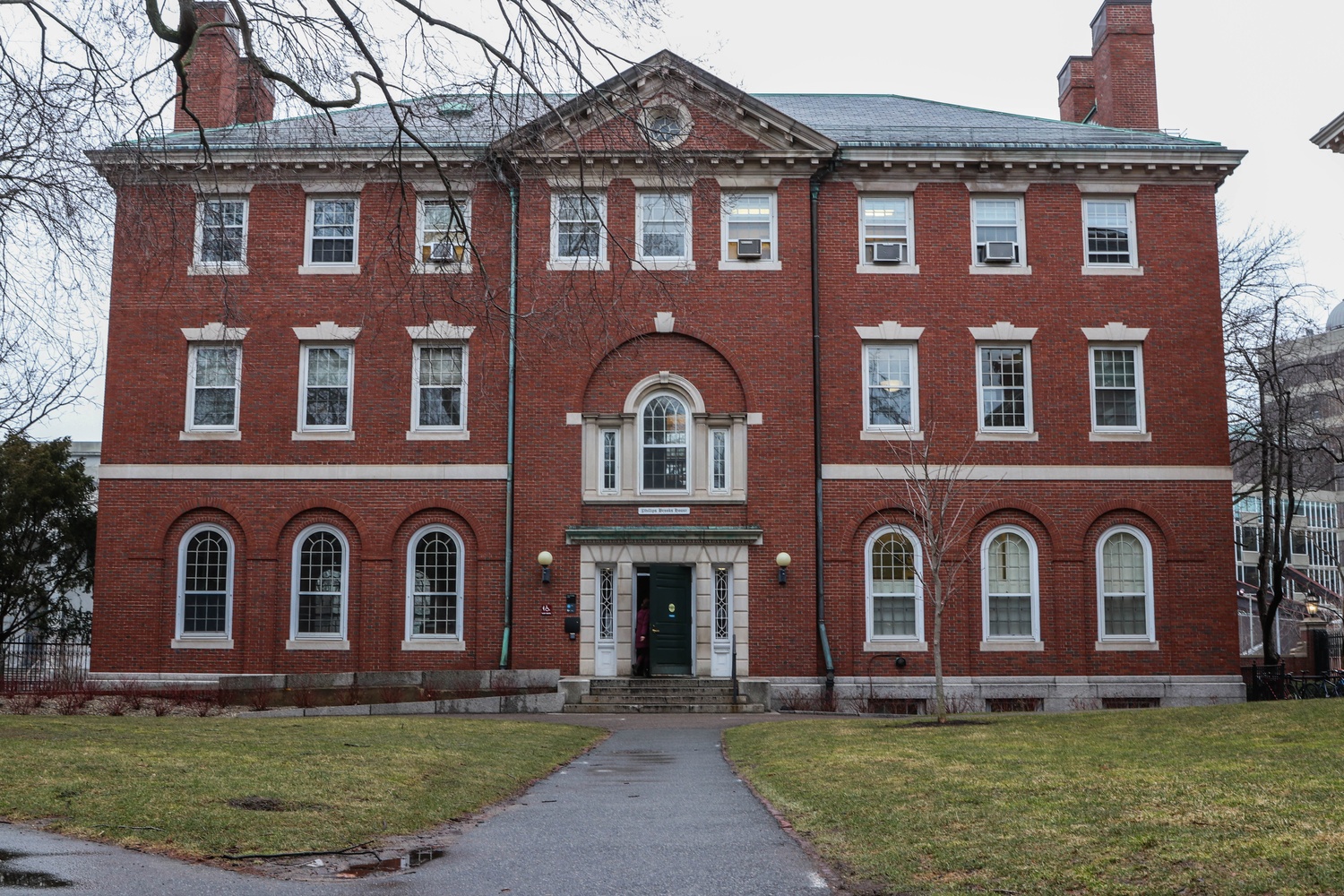
News
Summers Will Not Finish Semester of Teaching as Harvard Investigates Epstein Ties

News
Harvard College Students Report Favoring Divestment from Israel in HUA Survey

News
‘He Should Resign’: Harvard Undergrads Take Hard Line Against Summers Over Epstein Scandal

News
Harvard To Launch New Investigation Into Epstein’s Ties to Summers, Other University Affiliates

News
Harvard Students To Vote on Divestment From Israel in Inaugural HUA Election Survey
Service and Action: PBHA Becomes Political

Harvard’s class of 1975 made its way onto a campus newly shaped by the student activism of the previous decade. The Civil Rights Movement and Vietnam War catalyzed student organizing — a change reflected in the increasingly political environment of the Phillips Brooks House Association.
“This is a particularly politically active period for students on campus — and who can blame them for wanting to speak up and be out on the street?” said Douglas M. Schmidt ’76, PBHA president from 1975 to 1976. “That gets reflected in student-run, student-organized, student-created programs.”
Since its founding in 1904, the PBHA has served as Harvard’s flagship service organization — a place where students could give back to their city, tackling social issues through volunteer work.
But in 1975, the service organization expanded its mandate — reorienting its volunteer programs to address social issues at both the national and local levels.
Stephen D. Cooke ’75, PBHA president from 1974 to 1975, said that increasing student activism brought political issues — like affordable housing, prison reform, and educational equity — to the fore. Students in Phillips Brooks House began to think that simply volunteering to serve individuals would not be effective in the long term, so they started thinking in political terms instead.
“One aspect of that was the sense that unless you looked at a broader picture and a broader impact, you really weren’t affecting any meaningful change,” Cooke said. “Should we not be focusing on something that potentially has broader impact, or can broaden the impact of what we do?”
“You’d have this debate between – I never really liked the terminology – but social service versus social action,” he said.
The debate between service and action at the PBHA led both leadership and members to emphasize political activism in their volunteering efforts.
“We can be most effective if we’re able to establish partnerships, build alliances, identify what aspects of our clients’ lives are impacted beyond the narrow perspective we might have,” Cooke said.
This political activism came to the fore with PBHA’s work at Bridgewater State Hospital, a facility for individuals with severe mental illnesses and pending criminal charges. Cooke said his work on PBHA’s prisons committee evolved from weekly tutoring to informing inmates about their constitutional rights.
“I started going there, teaching classes in any of a number of different subjects, largely driven by what the students were interested in,” he said. But Cooke added he was concerned by the apparent overmedication of inmates as the “main way of control” in the facility.
Cooke discussed his concerns with a member of the Massachusetts chapter of the American Civil Liberties Union, who gave him their pamphlet on inmates’ rights to distribute to his students.
“I come into class and I bring a bunch of these copies and distributed to them, saying, ‘This is helpful information for you to have, so you know what your rights are,’” he said. “When the prison superintendent found out about it, I was banned from going back in there to teach.”
The Massachusetts ACLU then sued on his behalf.
While Cooke still values his experience volunteering at Bridgewater, and thinks it was valuable for the men he worked with, he said his work informing inmates of their rights — and then fighting for his own in court — helped address a “far greater problem.”
“There were other things that could have had a greater impact that really needed to be done — they would have a greater, longer-term impact on them and other people that had to go through that system, that couldn’t be navigated in that fashion,” Cooke said.
PBHA has significantly evolved in the 50 years since Cooke and Schmidt served their presidential terms — leaning into the social action and political advocacy catalyzed in the 1970s. Schmidt said he was “proud” of the PBHA’s work, and long-lasting impact on students’ lives.
“It changes their lives, and they become great citizens and board members and volunteers all of their lives,” he said. “They give back.”
—Staff writer Shawn A. Boehmer can be reached at shawn.boehmer@thecrimson.com. Follow him on X @ShawnBoehmer.
—Staff writer Graham W. Lee can be reached at graham.lee@thecrimson.com. Follow him on X @grahamwonlee.
Want to keep up with breaking news? Subscribe to our email newsletter.
